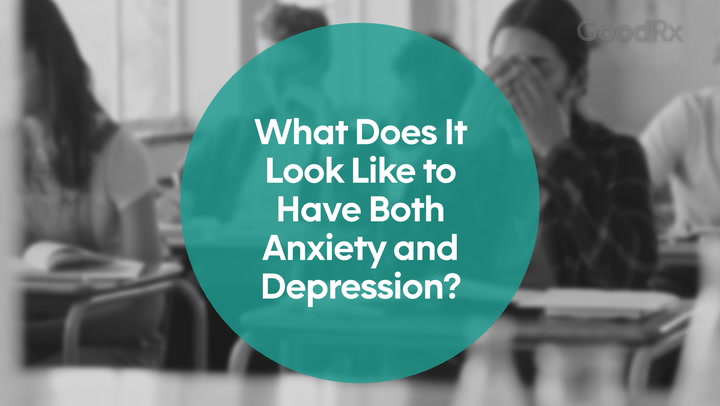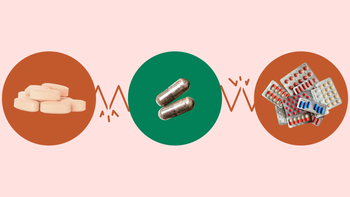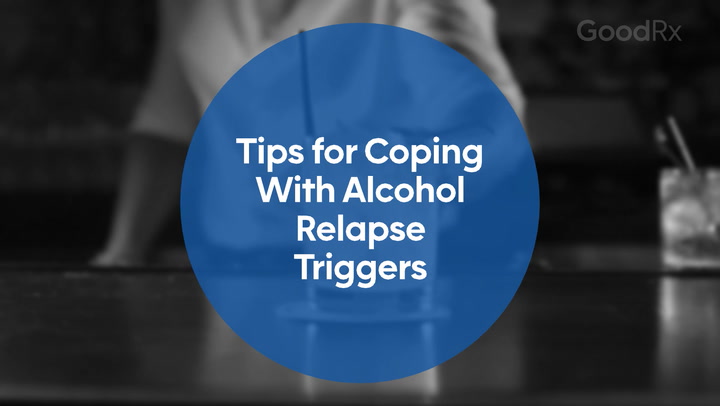
What Is Overthinking, and How Do I Stop Overthinking Everything?
Key takeaways:
Overthinking is when you dwell on or worry about the same thing repeatedly.
Overthinking can be caused by depression, anxiety, and other mental health disorders. It can also contribute to these mental health conditions.
Strategies that can help stop you from overthinking include mindfulness, deep breathing, and healthy distraction.
Table of contents
When faced with a major decision — such as choosing a university, switching careers, or getting married or divorced — most people think long and hard about all the potential outcomes. This makes a lot of sense. A major life change requires thoughtful consideration.
But sometimes you might find it hard to stop turning certain thoughts over and over in your mind. You may dwell on even tiny choices and think about what-ifs so much that you become frozen with inaction. Experts call this overthinking.
It’s normal to get too “in your head” sometimes. But chronic overthinking can interrupt your work, relationships, and health — as well as other aspects of your everyday life. Here’s what you should know if you suspect that you might be an overthinker.
SHINGRIX (Zoster Vaccine Recombinant, Adjuvanted) is now $0 for almost everyone*
Get SHINGRIX at the pharmacy or in-network doctor’s office today. 98% of privately insured people pay $0 and all Medicare Part D beneficiaries pay $0 at the pharmacy.
Prescribing Information
*Coverage and cost may vary and are subject to change without notice. Reimbursement decisions are made by individual insurance plans.


SHINGRIX is an FDA-approved vaccine for the prevention of shingles (herpes zoster) in adults 50 years and older. SHINGRIX is not used to prevent chickenpox.
• You should not receive SHINGRIX if you are allergic to any of its ingredients or had an allergic reaction to a previous dose of SHINGRIX
• An increased risk of Guillain-Barré syndrome (severe muscle weakness) was observed after vaccination with SHINGRIX
• Fainting can happen after getting injectable vaccines, including SHINGRIX. Precautions should be taken to avoid falling and injury due to fainting
• The most common side effects are pain, redness, and swelling at the injection site, muscle pain, tiredness, headache, shivering, fever, and upset stomach
• SHINGRIX was not studied in pregnant or nursing women. Tell your healthcare provider if you are pregnant, plan to become pregnant, or are breastfeeding
• Vaccination with SHINGRIX may not protect all individuals
• Ask your healthcare provider about the risks and benefits of SHINGRIX. Only a healthcare provider can decide if SHINGRIX is right for you
You are encouraged to report vaccine adverse events to the US Department of Health and Human Services. Visit www.vaers.hhs.gov to file a report, or call 1-800-822-7967.
For US audiences.
Trademarks are property of their respective owners.
©️2024 GSK or licensor.
PMUS-SGXWCNT240015 May 2024
Produced in the USA.
GoodRx Health information and resources are reviewed by our editorial staff with medical and healthcare policy and pricing experience. See our editorial policy for more detail. We also provide access to services offered by GoodRx and our partners when we think these services might be useful to our visitors. We may receive compensation when a user decides to leverage these services, but making them available does not influence the medical content our editorial staff provides.
What does it mean to overthink?
Overthinking is also referred to as rumination. It’s when you dwell on the same thought or situation over and over to the point that it disrupts your life. Overthinking usually falls into two categories: ruminating about the past and worrying about the future.
If you’re struggling with overthinking, you may feel “stuck” or unable to take any action at all. It can be hard to get the thoughts out of your mind or concentrate on anything else.
“The hallmark of overthinking is that it’s unproductive,” said Jessica Foley, a therapist in Waltham, Massachusetts. “An example might be spending hours ruminating on a decision and perhaps missing a deadline or losing sleep.”
While overthinking can cause stress, not all stress is bad. In the short term, thinking a lot about a stressful situation can prompt you to make a move.
When you’re nervous about an important work presentation, for example, that stress can help you spring into action. It might make you work harder on the project and get to work a bit early the day of the presentation to ensure you’re on time.
Sometimes overthinking can give you insight into your values and potential areas for personal growth. “Not all overthinking is bad,” Foley said. But it becomes unhealthy when it prevents you from taking action or interferes with your daily life and well-being.
Do you avoid things that make you anxious? Learn how to break the anxiety cycle.
Excessive worry may be a sign of anxiety. Here are signs that you may have anxiety.
Practicing mindfulness can help overthinking. Get started with these mindfulness practices.
What are signs of overthinking?
Most people get stuck on certain thoughts or fears from time to time. Being aware of when this is happening is the first step toward working on it.
Signs that you may be overthinking or ruminating include:
Thinking about the same thoughts, worries, or fears over and over again
Imagining worst-case scenarios
Repeatedly replaying something bad that happened in the past
Spending lots of time thinking negative thoughts about the past or future
Feeling down or depressed because of your thoughts
Thinking about something so much that you have difficulty concentrating on anything else
Continuing to think about a situation when you have already figured out a reasonable solution
Being unable to move on to the next important issue because you keep ruminating on the same problem
Read more like this
Explore these related articles, suggested for readers like you.
What causes people to overthink?
There are many reasons why people may overthink. In some cases, a person may be aware that they’re overthinking. For others, overthinking is unconscious, meaning that they’re not aware that they’re doing it.
While each person is different, here are some common causes of overthinking.
Controlling anxiety
For some people, overthinking can be a way of trying to control a situation and to feel more confident about what to do next, said Sanam Hafeez, PsyD, a neuropsychologist in New York City. When you’re overthinking, the brain attempts to reduce your anxiety by thinking through possible scenarios and trying to predict what will happen.
But when overthinking, people often get stuck in this mode and have trouble moving on and taking action.
“The problem with overthinking is that our mind almost always comes up with another worry question,” Hafeez said.
While overthinking for this reason is meant to help you, it often ends up causing more trouble in the long run.
Perfectionism
Researchers believe that perfectionists are more likely to ruminate than others. Perfectionists are people who set high standards for themselves and others.
“Perfectionists and overachievers have tendencies to overthink because the fear of failing and the need to be perfect take over, which leads to replaying or criticizing decisions and mistakes,” said Hafeez.
Shame
Shame is when you feel bad about yourself because of past behavior. People may dwell on things they did in the past that they regret and wish that they could change.
For example, a person may ruminate about a relationship that ended or about a failed venture. To some degree, thinking about past mistakes can help you learn and do better in the future. But ruminating about them can lead to negative feelings about yourself and depression.
Indecisiveness
Thinking through the pros and cons of any decision is helpful in many cases. But it can turn into overthinking if you repeatedly go over your options and don’t get any closer to making a decision. This is more likely to happen when it comes to big decisions, like where to buy a house or whether to take a new job.
Is overthinking a mental health condition?
Overthinking isn’t a recognized mental disorder by itself. But research has found that it’s often a symptom of other mental health conditions. For example, anxiety and depression can contribute to overthinking. And people who’ve experienced a trauma may be hypervigilant, or on high alert for danger at all times. That may lead to overthinking about potential signs of trouble.
Mental health conditions that may cause overthinking include:
Anxiety disorders, including generalized anxiety, social anxiety, and panic disorder
Effects of overthinking
Everyone overthinks at times. But if you overthink a lot, it can affect your health and daily life. For some people, overthinking can take up so much of their time that it affects their ability to keep up with responsibilities at home or work.
Some possible side effects of overthinking include:
Poor focus
Difficulty making decisions
Excessive guilt
Appetite changes
Types of overthinking
Experts don’t break overthinking into “types.” But some people overthink by engaging in cognitive distortions. Cognitive distortions are unhelpful ways of thinking that can lead to stress, anxiety, and depression.
Common types of cognitive distortions include:
All-or-nothing: viewing things as always one way or always another, with no gray area in between
Catastrophizing: thinking about the worst possible outcome in a situation
Overgeneralizing: assuming that something will always be a certain way based on one or a few instances
Jumping to conclusions: assuming that you know how something will turn out without sufficient evidence
Mind reading: believing you know what someone else is thinking without much evidence
How can I stop overthinking everything?
It won’t happen immediately, but you can break the cycle of overthinking. Follow these expert tips to get started.
1. Keep track of triggers and patterns
Keep a journal and write down specific moments that cause you to overthink. After a while, you’ll begin to notice patterns. This can help you recognize overthinking triggers when they happen. Then you can develop a coping strategy for situations that you know will lead to overthinking.
2. Challenge your thoughts
It might not feel like it, but you don’t have to believe everything your mind tells you. A good way to challenge ruminations is to try to take a step back and view them objectively, said Hafeez.
“Look at the evidence of the situation to see if a thought is logical, reasonable, or helpful,” Hafeez said.
If you can see that your thoughts don’t make sense or aren’t useful, it can make them easier to manage.
3. Get help from your friends
It can be helpful to get perspective and support from friends. Ask a trusted friend to weigh in with their thoughts on an issue that’s bothering you. You can also ask them to nudge you when you seem like you’re overthinking an issue.
Choose a friend who already knows how to manage overthinking. Research has found that co-rumination — too much discussing and going over problems with friends — can actually make anxiety worse.
4. Move your body
Plenty of research shows that exercise may help lessen depression, anxiety, and other mental health conditions. Exercise may help with chronic overthinking too.
“Even a 5-minute walk around the block can send an influx of good chemicals and hormones, like endorphins, to our brain,” Foley said.
Physical movement might also help shift your nervous system out of fight-flight-freeze mode. This may help calm any trauma-related rumination you’re experiencing.
5. Indulge in a healthy distraction
When you’re overthinking, it can be hard to focus on anything else. Try to shift your attention to a healthy distraction. Some examples include:
Reading a book
Watching a movie or a few episodes of a show
Doing an activity that you enjoy
Socializing with friends
Be careful to avoid soothing yourself with alcohol, drugs, or unhealthy behaviors. They may distract you from overthinking in the short-term. But they can lead to long-term problems.
6. Try breathing techniques
When you’re feeling stressed and overthinking, it’s common for your breath to become more shallow. To help counter this, try deep breathing. This involves taking in slow and intentional deep breaths.
There are different deep breathing techniques that you can try. One popular one is called box breathing. It’s called box breathing because the breath creates a pattern that looks like a square. Here’s how to do it:
Inhale slowly for 4 seconds.
Hold your breath for 4 seconds.
Exhale slowly for 4 seconds.
Hold for another 4 seconds before repeating.
7. Practice mindfulness
Mindfulness meditation involves staying aware of the present moment. This can help you rein in unwanted thoughts.
There are many different ways to practice mindfulness. Aim for 10 to 15 minutes of mindfulness practice a day. And think about doing it when you catch yourself ruminating.
Here are some ways to practice mindfulness meditation:
Listen to a guided meditation audio.
Take a mindful walk. Notice what you see and hear, and feel the sensation of your legs and feet walking.
Take a few minutes to notice any physical sensations, thoughts, or emotions that come up. Try not to judge your thoughts or emotions.
Focus your attention on your breathing. If your mind gets distracted, notice this and return your attention to your breath.
When you practice any form of mindfulness, it’s common for thoughts to pop up. When this happens, just notice that your mind has shifted and bring your attention back to your breath, senses, or the recording. The act of noticing and bringing yourself back is the most important part of mindfulness.
8. Reframe negative thoughts
When you’re stuck in overthinking, it can be hard to see a situation any other way. But the reality is that you may not always think rationally about something that happened or will happen in the future. Try to reframe your thoughts to help you see a situation from another point of view.
Ask yourself the following questions:
Is this thought helping or hurting me?
Is this thought true in all circumstances? Are there times when this thought isn’t true?
Am I basing my conclusion on facts or feelings?
What’s the likelihood that this will happen? Am I exaggerating how likely it is to happen?
Now, try coming up with a new thought that’s both helpful and true. For example, if you keep thinking, “I’m going to bomb that interview,” you can instead say, “I can’t predict exactly how the interview is going to go, but I can do my best to prepare for it.”
9. Get help from a professional
“If overthinking seems to be taking over more than you’d like, it might be good to see a mental health professional or speak with your primary care provider about it,” Foley said.
A therapist or counselor can help you learn coping strategies to manage rumination. They can also help identify and treat any underlying causes of overthinking, like anxiety or depression.
There are different types of therapy that can help reduce overthinking, including:
Metacognitive therapy: This type of therapy focuses on changing the way that you think about your own thoughts.
Rumination-focused cognitive behavioral therapy: This approach helps you notice and stop rumination.
Acceptance and commitment therapy: This teaches you to accept yourself and your experiences as they are.
To find a mental healthcare provider near you, you can search online therapist directories, like:
Gaylesta (LGBTQ+ therapists)
InnoPsych (BIPOC therapists)
Open Path Psychotherapy Collective (low-cost therapy)
The bottom line
Overthinking is when your thoughts and worries circle in an endless loop. Instead of preparing you for next steps, overthinking usually leads to inaction because it causes you to become overwhelmed by fear. Overthinking can be a symptom of depression, anxiety, and other mental health conditions. To stop overthinking, you can try challenging your thoughts, reaching out to loved ones for support, or talking to a mental health professional.
Why trust our experts?



References
Alirahmi, M., et al. (2023). Effectiveness of behavioral activation therapy and acceptance and commitment therapy on depression and rumination as a tool for health promotion on mothers with cerebral palsy children. Journal of Education and Health Promotion.
American Psychological Association. (2019). Mindfulness meditation: A research-proven way to reduce stress.
American Psychological Association. (2020). Rumination: A cycle of negative thinking.
American Psychological Association Dictionary of Psychology. (2023). Perfectionism. American Psychological Association.
Brand S., et al. (2018). Acute bouts of exercising improved mood, rumination and social interaction in inpatients with mental disorders. Frontiers in Psychology.
Carlucci, L., et al. (2018). Co-rumination, anxiety, and maladaptive cognitive schemas: When friendship can hurt. Psychology Research and Behavior Management.
Ehring, T. (2021). Thinking too much: Rumination and psychopathology. World Psychiatry.
Eng, C. P., et al. (2020). Think + think + … think = overthinking. Teaching and Learning in Higher Education.
Every Mind Matters. (n.d.). Reframing unhelpful thoughts. National Health Society.
Langenecker, S. C., et al. (2024). Rumination-focused cognitive behavioral therapy reduces rumination and targeted cross-network connectivity in youth with a history of depression: Replication in a preregistered randomized clinical trial. Biological Psychiatry Global Open Science.
Michl, L. C., et al. (2013). Rumination as a mechanism linking stressful life events to symptoms of depression and anxiety: Longitudinal evidence in early adolescents and adults. Journal of Abnormal Psychology.
Orth, U., et al. (2006). Self-conscious emotions and depression: Rumination explains why shame but not guilt is maladaptive. Personality and Social Psychology Bulletin.
Pillai, V., et al. (2015). Chapter 10 - Sleep and repetitive thought: The role of rumination and worry in sleep disturbance. Sleep and Affect: Assessment Theory, and Clinical Implications.
Randles, D., et al. (2009). Dimensions of perfectionism, behavioral inhibition, and rumination. Personality and Individual Differences.
Sansone, R. A., et al. (2012). Rumination. Innovations in Clinical Neuroscience.
Singh, B., et al. (2023). Effectiveness of physical activity interventions for improving depression, anxiety and distress: An overview of systematic reviews. British Journal of Sports Medicine.
Therapist Aid. (2023). Cognitive distortions.
Tsatsoulis, A., et al. (2006). The protective role of exercise on stress system dysregulation and comorbidities. Annals of the New York Academy of Sciences.
Wei, M. (n.d.). You can practice mindfulness in as little as 15 minutes a day.
World Health Organization. (2023). Stress.
For additional resources or to connect with mental health services in your area, call SAMHSA’s National Helpline at 1-800-662-4357. For immediate assistance, call the National Suicide Prevention Lifeline at 988, or text HOME to 741-741 to reach the Crisis Text Line.


























